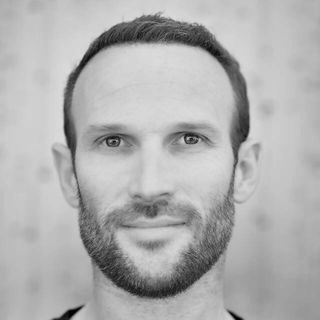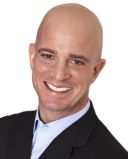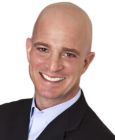Alcoholism
James Swanwick’s Challenge to Go From Average to Awesome
Exploring the benefits of being alcohol free
Posted February 2, 2016

Alcohol flows everywhere in our culture.
It’s how we relax, how we socialize, how we celebrate. And while it’s generally accepted that alcohol abuse and dependence is harmful, we generally view casual drinking — even binge-drinking — as not only acceptable, but preferable, as a part of life.
But with his “30-Day No-Alcohol Challenge,” James Swanwick is presenting a challenge to that mindset: Don’t stop drinking alcohol because you want to survive. Stop drinking because you want to thrive.
In terms of alcohol dependence and abuse, the harmful effects are well-documented. Long-term alcohol abuse and dependence can lead to chronic health issues, such as cardiovascular disease, depression, violence and irresponsible behavior. Overall, excessive alcohol use costs the nation more than $200 billion per year, largely as a result of lost work productivity.
On the other hand, there has been relatively little evidence that moderate drinking (no more than one drink per day for women, no more than two for men) carries health risks. In fact, there is some evidence that moderate drinking is associated with improved health. For example, reviews of the literature suggest that moderate drinking predicts lower risk for heart disease.
For many people, however, their alcohol consumption falls somewhere in between; namely, at a level that would be labeled “heavy drinking.” Heavy drinking includes frequent binge-drinking and can mean more than eight drinks a week for women, and more than 14 drinks a week for men. It can also be defined as four to five drinks in two hours or less. Approximately 17 percent of individuals binge-drink and do so about four times a month. Most binge-drinkers are not alcohol-dependent, and yet harmful effects can still occur, including cardiac disease, drunk driving and violence.
Swanwick’s focus on reduction of alcohol use as a potential path for personal growth arose from his personal experience. “I was never a problem drinker. I was never an alcoholic — at least I didn’t think I was. I was just a good social drinker,” he told me. “I grew up in Australia, where drinking is very much a part of the culture. I would drink during the week a couple of beers here and there. Then on Thursday, Friday and Saturday nights, I might turn it on a bit more and binge-drink.”
While Swanwick enjoyed himself, he didn’t like the consequences. “I got sick and tired of feeling sick and tired. And I put on some weight. I put on about 30 pounds, actually. And everything in my life was just average. So it wasn’t like I was in despair, or I was depressed; I was just like ‘blah.’
“I felt like I was just existing.”
Then, in 2010, Swanwick made a decision that would change his life. “I took a 30-day break from alcohol. Because I wasn’t drinking, I had a lot more clarity, focus and energy. I felt amazing. My sleep was better. I was more generous and was thinking about the quality of my relationships more. So my relationships were better, I was more connected, and I lost 13 pounds.”
Soon after, his professional life began to improve considerably. “I landed my dream job of hosting a television show. I got a job hosting “Sports Center” on ESPN. And I credit a lot of that to the new psychology that I had at the time, which was from not drinking.”
As he began to feel better, others started noticing the changes. “I found myself being interviewed on many podcasts about my business, and how I became a sports anchor on ESPN, but the host always wanted to ask me about why I quit drinking,” he said. “And then I started getting emails from people and messages from people, ‘Hey, I listened to you, and it was amazing. You said you don’t drink. I’ve always wanted to quit drinking or reduce, but I just don’t feel like I can’ and ‘Your story really inspired me, James.’”
With the increased attention Swanwick was getting for his success, he began to focus on how he could help others make the same changes. I turned my life around 180 [degrees], to the point where I was thinking, ‘How can I help people, rather than how can this person help me?’”
Swanwick developed his 30-Day No-Alcohol Challenge, which included daily videos designed to inspire change. “So, I was thinking, maybe I should just create a program that helps people quit booze for 30 days. So, I literally just put up a program, and 30 days later, I had a program called ‘30-Day No-Alcohol Challenge,’” he explained. “I recorded 30 videos. You get one video every day delivered to your inbox, and it gives you a tip a day on how to quit alcohol for 30 days and then reduce, ongoing.
“So, for example, one video might be, what you say when your friends are all, like, ‘Go on, just have one,’ and then Day Two might be what you order at the bar tonight when you go out, instead of an alcoholic drink. And so they get those videos in their inbox every day, and then you go into this community of other challengers around the world, and they all support one another.”
While many people consider a drink at the end of the day as their reward, Swanwick’s perspective is that the reward isn’t drinking; the reward is not drinking.
“The pleasure of life is good health, rather than putting toxins and poison into my body. There actually is a way to relieve my stress at the end of the day at work that doesn’t include pouring myself a nightly glass of wine?” he said. “I can go out and be the life of the party, and have the most fun at the party while only drinking water, ice and a piece of lime. I’m not here to tell you to quit drinking; I’m just here to encourage you to quit drinking for 30 days to get a glimpse of what it’s like.”
The key to Swanwick’s message is that it isn’t just about scaring people with the negative effects of alcoholism, but about focusing on, as he puts it, taking your life from “average to awesome.” This framing actually reflects a growing shift in the field of psychology. While the predominant focus has traditionally been on the prevention and treatment of psychological disorders, positive psychology theorists have examined how to grow beyond simply the absence of mental illness.
Swanwick encourages people to examine the possible positive effects of stopping drinking. And rather than denouncing alcohol use as “bad,” Swanwick prefers to help people examine the pros and cons of drinking. This approach is more consistent with the concept of motivational interviewing, which helps people identify reasons for engaging in a particular health behavior, and has been shown to be efficacious in a range of addictive behaviors, including alcohol abuse.
Swanwick explained, “You sleep better. You’ll lose weight. You have more clarity. You’ve got more focus. Your skin will just look amazing. Your relationships are better because you’re less irritable. You connect with your kids more. You connect with your husband or your girlfriend or your wife, whoever your partner is. You get to wake up on a Saturday or Sunday morning and meet someone for a juice or a hike or a coffee.
“Your sex life improves because when you stop drinking, men’s testosterone levels go up or at least they stop staying down or going down. Women’s testosterone levels as well go up. Women have got testosterone. It’s important for them. So, your libido goes up, you’re hornier, you want to have sex more, you have sex better, you’ve got more energy to do it,” he added.
“You have better conversations with people. You start to take a genuine interest in other people. Rather than just an interest in them because it’s the socially acceptable thing to do. You’re like, ‘Tell me about yourself. What are you passionate about right now? I really want to know.’
“People can sense that. And most importantly, you get more energy. And more energy leads to better sleep, which leads to greater health, which leads to greater levels of happiness, and greater levels of happiness lead to better relationships, which lead to better marriages, which lead to more happiness, which leads to more money, which leads to more health, and it just keeps going on.”
But Swanwick’s challenge has not always been an easy sell. One hurdle is that unless it rises to the level of alcoholism, most people simply do not see drinking as an issue. “People always look at me, and when they realize that I quit drinking, they always think that I was an alcoholic, because why would anyone choose not to drink alcohol if they didn’t have a problem?” he said. “I’ve got friends of mine who have known me for five years. Half of them are still trying to see if there was something where I did something crazy that led to me to not drink.”
Another barrier to quitting drinking is the perception of social pressure to drink. “It is ingrained in our culture that drinking is acceptable, and that habitual drinking is acceptable, and that drinking whenever you’re in a group of people is the norm,” Swanwick said. “And drinking a glass of wine or having a beer at the end of a day’s work when you’re feeling stressed is just the normal way to relax. It’s a rite of passage — on your 18th birthday or your 21st birthday, you better get drunk and throw up in the garden, and everyone laughs and pats you on the back.”
Swanwick has personally felt this pressure. “My friends would say, ‘Go on, just have one. Don’t be a pussy. An Aussie who doesn’t drink? They arrest you in Australia for that, don’t they?’”
And some of Swanwick’s friends have taken it a step further. “One of my friends said, ‘Do you want a drink, James?’ I say, ‘Yeah, grab me a soda water.’ And he came back, and he’d secretly slipped vodka into my soda water, and he handed it to me. I went to put it to my mouth, and I could just smell it, and I put it down. And I was, like, ‘You’re a wanker, man,’” he recalled.
“There’s billboards of George Clooney on Sunset Boulevard pushing his tequila brand with Rande Gerber. It’s him riding a motorcycle in a black leather jacket looking really cool with a tequila brand as if to say, ‘If you want to be suave and charismatic in life, be like George Clooney. Drink tequila.’ It’s nonsense. You can be all those things without it.
“There’s a great book called Evolutionary Psychology by professor David Buss, and he talks about when we were cavemen, we had tribes. And there was real danger of being ostracized from a tribe. Because if you were, you’d go out and get eaten by a wild bear or killed. ....Watch Super Bowl commercials or beer commercials on NFL Sunday, and they’re all, like, goofy guys standing around drinking, and it’s reinforcing this idea that you need to drink to be a part of the tribe and to be cool and fun and to watch the game,” he said.
When friends wouldn’t accept Swanwick’s choice not to drink, however, his response: “I just found another tribe. It’s not like in today’s world I’m going to get eaten by a bear. I’ll just find people who relate to my story. They’re everywhere. But I don’t deliberately go out to seek those people,” he explained. “I don’t go out, and say, ‘I’m going to find a bunch of nondrinkers.’ I just go out and socialize with people in general, and when it happens to come up that I don’t drink, other people will say, ‘Oh, I don’t drink either,’ and then that’s cool, and now you’ve got a point of commonality, and then you start talking to that person.”
Swanwick has found that people who tend to avoid alcohol have other interests that are consistent with his own. “My experience has been that people who choose not to drink, whether they were an alcoholic or they were not, they usually are more health-conscious, usually tend to be more forward-thinking, usually tend to be more spiritual,” he said. “They usually tend to be the type of people who want to go hiking on a Saturday or Sunday morning, rather than sleeping in. They’re the type of people who are more into self-development.”
Even with the myriad benefits that Swanwick espouses regarding quitting alcohol use, he keeps the goal of his program modest: Just give him 30 days. “The main point that I urge people to understand is that you don’t have to quit alcohol forever. But you should just explore the idea of reducing alcohol throughout your life or quit it,” he said. “What most people do who go through my ‘30-Day No-Alcohol challenge’ is they go back and have just the occasional drink. They’re no longer relying on it as a crutch. They’re no longer relying on it, and no longer feel the need to drink. They just do it as a choice when and how they feel. Most people completely reduce the amount of drinking ,and some people have just stayed quit.”
So, who is ready to take Swanwick up on his challenge?
Michael Friedman, Ph.D., is a clinical psychologist in Manhattan and a member of EHE International’s Medical Advisory Board. Follow Dr. Friedman onTwitter @DrMikeFriedman and EHE @EHEintl.




